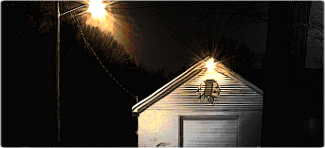To check the alignment, just go driving on a straight road and let go of the wheel for a second or two. A properly aligned vehicle will always stay straight, but if it's off even a little bit, your car will gradually ease over to the side. That's something that is best leaving to a mechanic fixed, because it's a pain in the ass to get right, and most places only charge about $75. It's well worth it to avoid screwing with it and getting it wrong
Actually, you're only partly right on this. This will work fine on a rear wheel drive vehicle for the most part, but with front wheel drive, you have to put it in neutral and coast. Front wheel drive vehicles have what known as "torque steer." If you take your hands off the wheel while stopped, and hit the gas, the car will consistently go to one side or the other, depending on the configuration of the transaxle, axle length differential. Even on rear wheel drive vehicles, it's best to coast when checking for proper alignment.
And no, I'm not trying to discredit you, or derail your thread.
Last edited:

 }})



